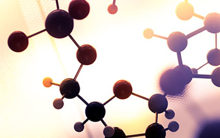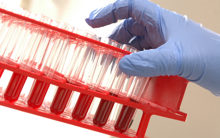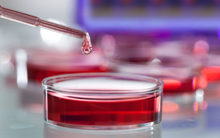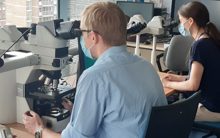This blog from haematology registrar, Dr Sandheea Ramdeny, shines a spotlight on the amazing support being given to children with blood cancer and other disorders, against the backdrop of the COVID-19 pandemic.
Raising awareness
September is both Blood Cancer Awareness Month and Childhood cancer Awareness Month. Haematological cancers are most prevalent in the paediatric population and childhood cancer remains the leading cause of death of disease for children.
This year has been very different for all of us. Those of us providing specialist haemato-oncology care in the UK, and in low-income countries have faced a range of challenges.
Last year, in my attempt to promote childhood awareness cancer as a paediatric doctor, I donated my hair, which I had grown over the previous year, to a charitable organisation who provides free real-hair wigs to children and young people up to the age of 24, who have lost their own hair through cancer treatment or other conditions.

My team have had to adjust our ways of working during the pandemic so we can continue to provide a service to allow the optimal delivery of care of patients.
Volunteering in Sierra Leonne
This summer has been very different as for me - in summer 2019, I was in Sierra Leonne volunteering in Freetown at Ola Children’s Hospital to improve the care of paediatric patients with a haemo-oncological malignancies. Together with the paediatric haemato-oncology team from the UK, we delivered teaching sessions to the nurses and implemented quality improvement project to improve the Children’s Cancer Centre in Sierra Leonne (as shown in the picture below). However, this year, owing to the COVID19 pandemic and restrictions on world travel, the team has been unable to go over to Sierra Leonne. Nevertheless, we have remained in touch and we all tried our best to ensure that we continued to support the care for paediatric patients amidst the pandemic.
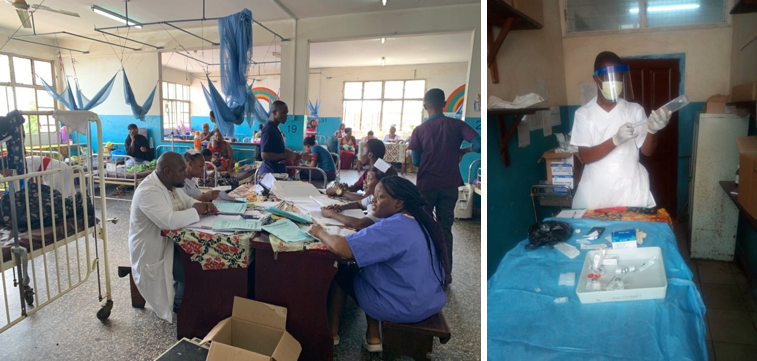
Activity camp for young people with serious illnesses
Each summer, I also take part in an amazing UK-based activity camp for children, teenagers and families who are living with serious health challenges. The aim of this free one-week camp is to improve the mental wellbeing of children who have serious health conditions such as leukaemia. These kids who live with their health problems are mostly affected by their illness and are unable to participate in fun activities normally enjoyed by their friends and peers. Consequently, these kids then have a reduced self-esteem and self-confidence which can negatively impact on their growth and their development.
Haematological cancers are most prevalent in the paediatric population and childhood cancer remains the leading cause of death of disease for children.
The summer camp usually takes place in a boarding school located in Perth, Scotland, with breathtaking landscapes. The medical team consists of five paediatric specialist registrars, one GP, one paramedic and two nurses. The medical team attend all of the activity and social sessions, which include archery, drama, arts and crafts, and ensure that all of the little campers have been given their medication. They will attend to their medical needs if they become unwell. For instance, a child with sickle cell disease could have a sickle cell crisis – in this case we would be on hand to look after the child and escort them to the nearest hospital.
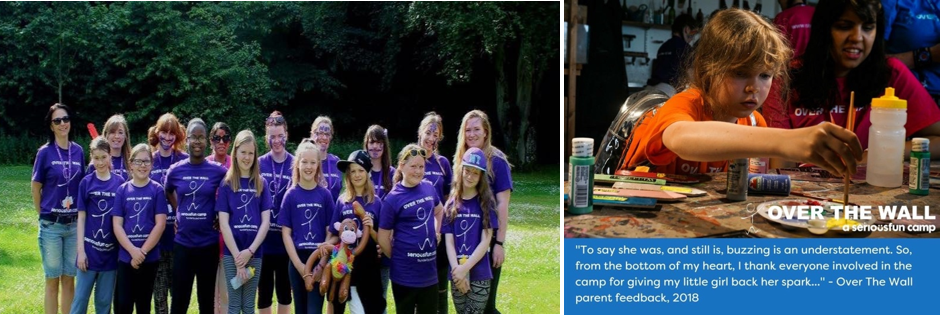
However, this year owing to the pandemic, we decided all the summer camps were cancelled and instead the charitable organisations ran a virtual activity camp a way to continue the activities and maintain the mental health and well-being of those children with serious health conditions.
Coming together to protect the most vulnerable
Like many others working in the NHS, my team have had to adjust our ways of working during the pandemic so we can continue to provide a service to allow the optimal delivery of care of patients. We all wear masks working whilst working to reduce the spread of the virus. This is of course particularly important when working with vulnerable patients who have weakened immune systems due to blood cancer like leukaemia and lymphoma.
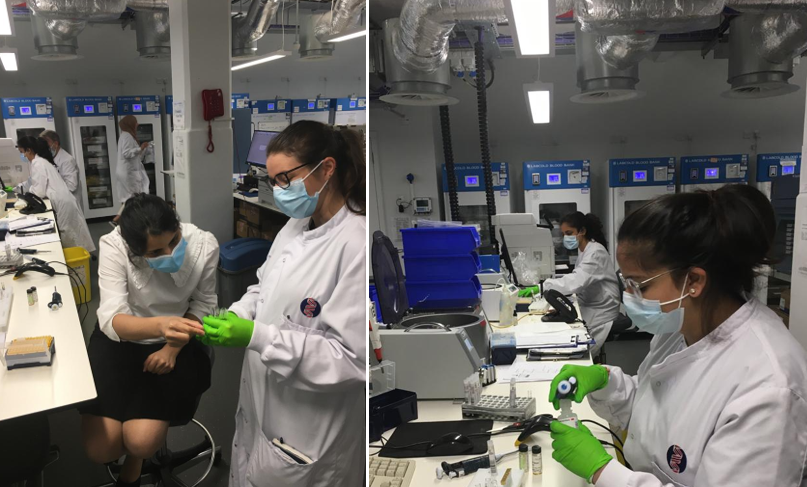
Despite the challenges of making so many adjustments in our personal lives, and in our workplace, we have all come together to protect the most vulnerable, and delivered the best possible care to the best of our abilities, to ensure that those who are sick are well looked after. There are no words to describe the dedication, hard work, commitment and resilience that all of the health professionals in the NHS have shown during this period. We shall continue until the pandemic is over.
Find out more about Childhood Cancer Awareness Month
Find out more about Blood Cancer Awareness Month




